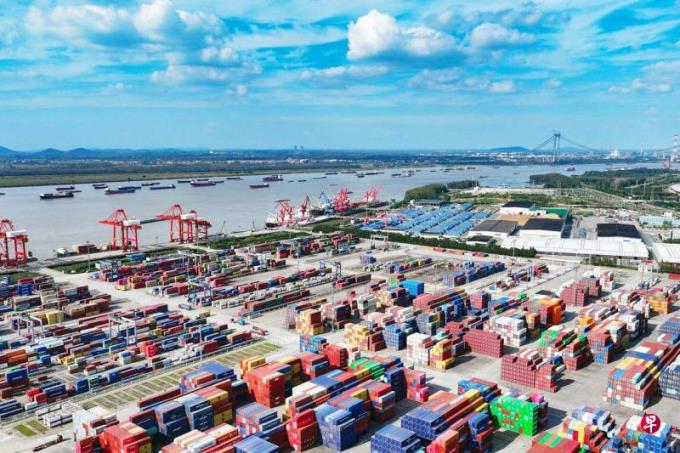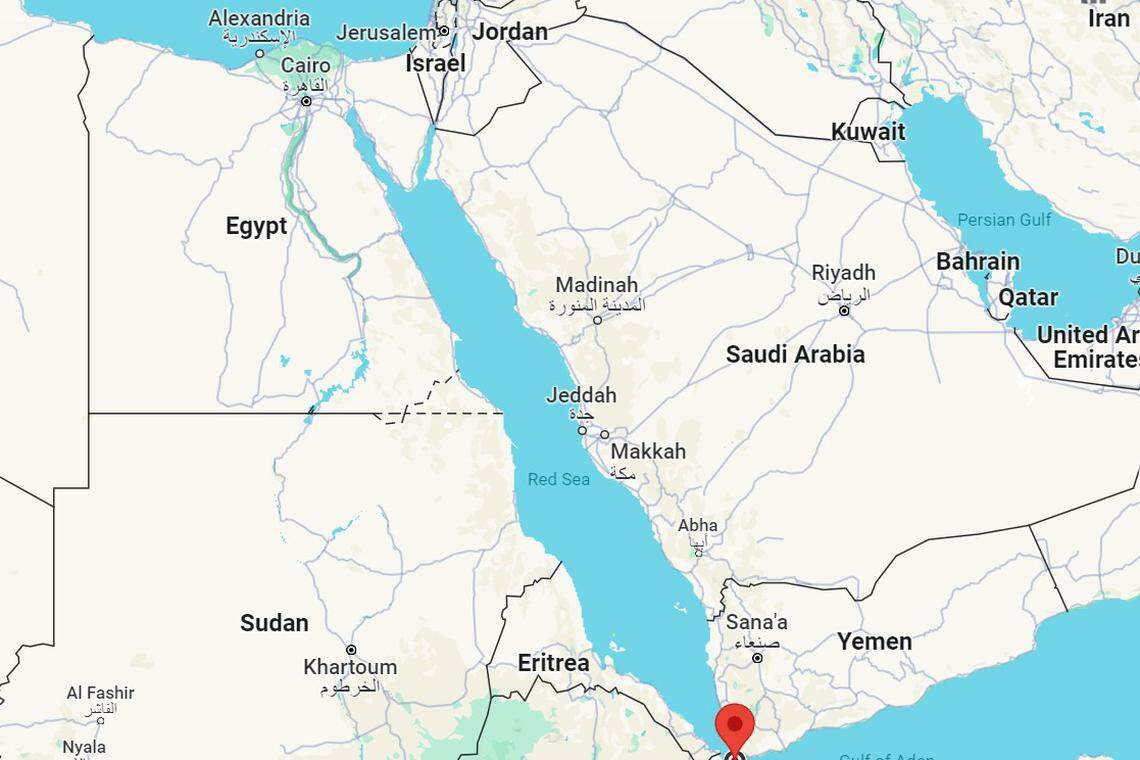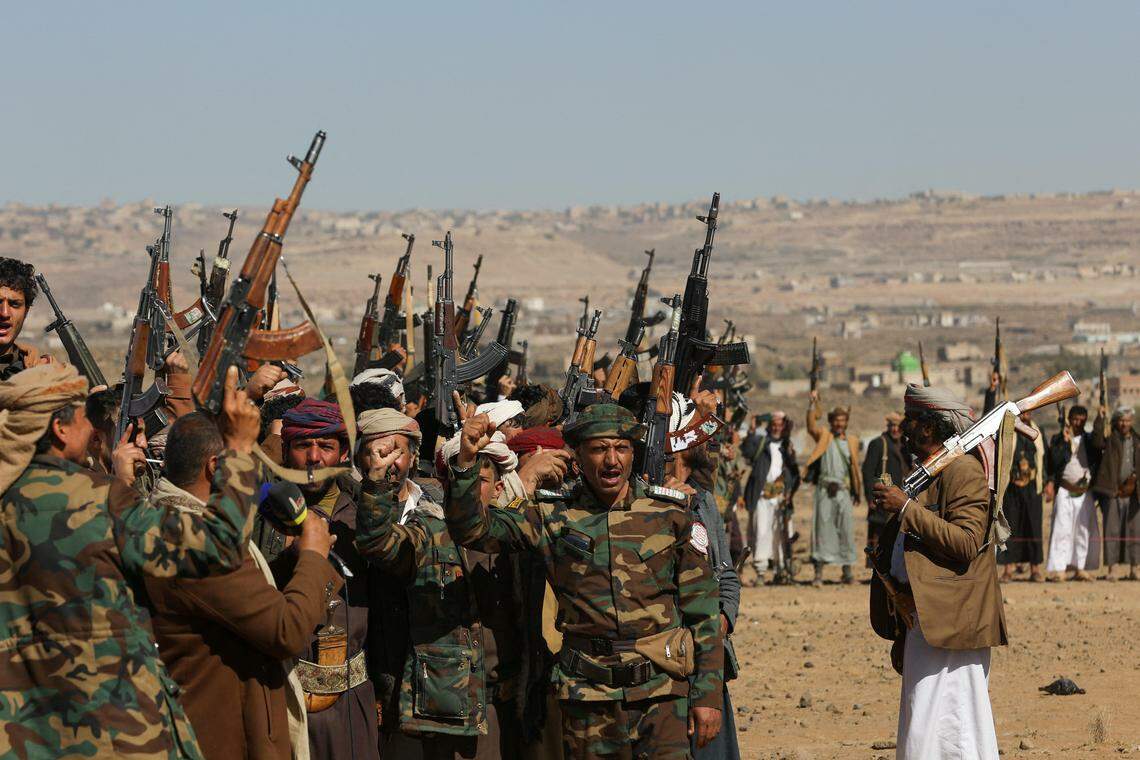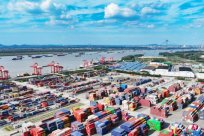
Yewumen armed forces frequently attacked the Red Sea commercial channel, the Red SeaThe situation continues to heat up, and global shipping has to go by bypass.For China, the Red Sea crisis not only puts pressure on its shipping, trade and economy, but also tests China's political and foreign influence in the Middle East.
The Houthi armed forces supported by Iran have been supporting the Red Sea vessels since November last year, saying they support their support for the Aid Hamas of Palestine.The shipping company is not enough to disturb, and at the end of last year, it announced the interruption of the operation of the Red Sea-Suidi Canal.
The northwest of the Red Sea is connected to the Mediterranean through the Suez Canal, connected to the Bay of the Mandaron through the Mande Strait in the south.

After the Red Sea route is interrupted, cargo ships from East Asia to Europe, East Asia to the Mediterranean have to be detoured from Africa. The voyage increased by more than 3,000 nautical miles, and the sailing time increased at least 10 days.
The route diversion has also led to the rise in freight rates, and the cost of commodity transportation exported to Europe has also increased significantly.A report from the Global Times in December last year quoted a name Ukraine merchant, "The price of a container now more than twice as much as last month."The Bloomberg industry research states that the Shanghai container freight index rose to the highest level since September 2022.
The origin of the Red Sea crisis
The Hassas armed forces rising in the Civil War in Yemen, like the Palestinian radical Hamas, are an enemy with Israel and supported Iran.
Shortly after the outbreak of the Harbin conflict, for the support of Hamas, the Hussean armed forces dispatched drones and missiles, and attacked any ships related to Israel or drove to the port of Israel in the Mande Strait at the south of the Red Hai.And with the expansion of the Harbin war line, it began to attack the ships that had nothing to do with Israel.
Between the Manda Strait between the Miden and Gibiti, the Hassas armed forces controlled the port city of the port city close to the Mande Strait.
In mid -December last year, major shipping companies around the world have suspended ships driving to the Red Sea and Aden Gulf.
In order to converge the Hassy armed forces and restore the security of Red HNA, the United States and Britain jointly implemented a large -scale sea and air attack on the Houthi armed target last Friday (January 12).But the Hussean armed spokesman said that the US military attack did not cause any damage or casualties, and would make a "firm, powerful and effective reaction."

However, according to the British Shipping Media Loss Daily, more ships avoided this dangerous area after the US -British air strikes.
China's economic loss
The European Union is the second largest trading partner in China. Last year, China -Europe trade volume was RMB 5.51 trillion (S $ 103 trillion), accounting for the total foreign trade value.13.2%.And 60%of China's exported goods to the European Union need to pass the Suez Canal.Faced with the Red Sea crisis, Caixin.com reported that China -EU supply chain not only had significant delays, but also had a risk of interruption in the future.
Jin Lixian, the executive chairman of the Yiwu International Chamber of Commerce and Yiwu International Freight, told the Global Times last December that the price of a container was originally more than 1,000 US dollars, and it has soared to more than 3,000 US dollars. "Not necessarily the cabin. "
The cost of each link is rising.Dexun Logistics Company predicts that the crisis over the peak shipping season before the Chinese Spring Festival, and the port will face the shortage of container in the next two weeks.This means that in addition to shipping costs, the rent of containers and warehouses will also rise again.According to CCTV Finance reports, affected by the situation of the Red Sea, the prices of container on some Asia -Europe routes have recently soared by nearly 600%.
The part of the rise is either borne by the merchant or is shaped into the product to reduce the price competitiveness.This is undoubtedly a huge challenge for the cost -sensitive Yiwu commodity merchant.The Securities Times reported that Chinese products from the sea to Europe are mostly products with daily necessities, clothing, hats, electronic equipment and other products with low value and thin profits.Increase cost and further compress profits.
Not only small products are affected, cars and photovoltaic products that account for China's exports are also affected.The New York Times quoted the London Shipping Data Company data that there were only 42 ship transport ships in the Red Sea in December 2023, a decrease of more than half from December 2022.
Caixin.com reports pointed out that the cost of export transportation of photovoltaic products has risen several times, and the European -to -shore price of Chinese photovoltaic components will rise by about 10%.
From the perspective of import, according to Tianfeng Securities report, if the crisis continues, the supply chain of Chinese domestic electronic products will also be affected, because China imported from the EU, vacuum pipes, semiconductor devices and devices and devices and devices and devices and devices and devices and devices and devices and devices and devices and devices and devices and devices and devices and devices and devices of semiconductor devices and devices imported from the European Union.Related products are also mainly through sea transportation.
In addition, the crude oil purchased from the Middle East may also increase prices due to the spread of the Red Sea.About half of the crude oil imported from China comes from the Middle East, partly through the Suez Canal, and partly through the Persian Gulf Holmus Strait.Former Economic Cooperation and Development Organization (OECD) former chief economist John Llewellyn predicts that the situation in the Red Sea may spread to the Holmus Strait and the wider Middle East.
Still on sleeves?
Because of its interest in the region, the international community expects that China can play its influence in the Middle East and help solve the Red Sea crisis.
On January 10, the United Nations passed a resolution on the situation in the Red Sea, demanding that the Hussean armed forces stopped attacking merchant ships and China voted for abandoned votes.
The Chinese permanent representative of the United Nations Zhang Jun explained that because the draft resolution is still ambiguous on several key issues, China is concerned that it may not achieve the expected results and even bring negative consequences.The voting voting voted.
Some opinions believe that China has made a wall view on the issue of international conflicts, without condemnation or action.Voice of America quotes George Washington University professor and former US diplomat David Shinn said that China not only has commercial interests in the region, but also has a naval ship nearby.May do this. "
Nearby naval ships refer to the naval base established by China in 2017 in 2017.
But there are also opinions that whether it is persuading Hassy forces or Iran, China has limitations.Bloomberg Society on Monday (January 15) quoted William Figueroa, a assistant professor in China and the Middle Eastern University in the University of Gloonen, Dutch, saying that China's strength in the Gulf area is limited, and they are unwilling to get involved in greater conflicts, and China is more intense.Consecration may be irritated in Iran, not too muchEffect.
China's latest statement on the Red Sea issue is the member of the Political Bureau of the Communist Party of China and the Chinese Foreign Minister Wang Yi, on Sunday, local time (January 14) that China has a deepening concern for the recent drastic heating up in the Red Sea.Call for the suspension of the behavior of the people's ships.
Wang Yi said that China also believes that the Security Council has never authorized any country to use force against Yemen, and should avoid oiling the tension of the Red Sea, push up the overall safety risks of the region, and emphasize that the situation in the Red Sea is tense.The prominent performance of the overflowing conflict of Gaza is that the priority should be to calm down the sand as soon as possible to prevent the conflict from further expanding or even out of control.
So next step, what specific actions will China have?Is it more actively exploring the solution of the new way to participate in the problem, or is it like the media person Hu Xijin's previous comments. I hope that "the Hassy armed forces open their eyes and don't mistake the Chinese ships"?This is not only about China's economic and trade interests, but also is closely related to its diplomatic reputation and international influence in the Middle East.




